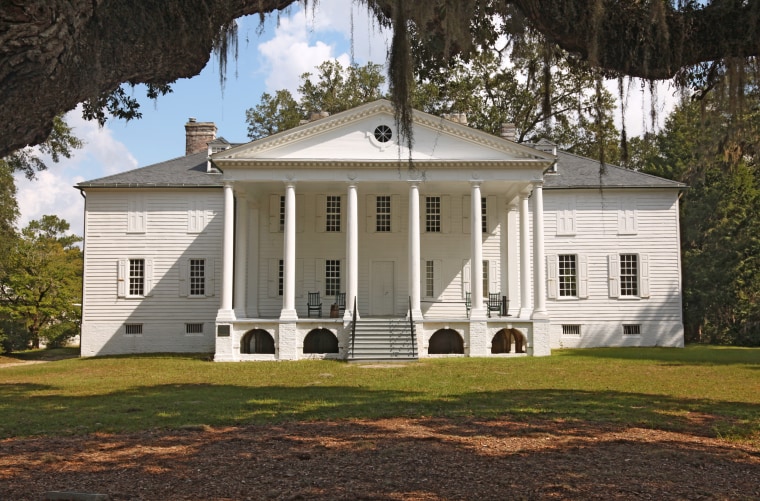The Knot and Pinterest, two popular sites used by couples to plan their weddings, said on Wednesday that they are making changes to ensure former slave plantations aren’t romanticized as wedding venues.
Both sites announced the changes after being contacted by Color of Change, a civil rights advocacy group. The changes were first reported by BuzzFeed.
“Weddings should be a symbol of love and unity. Plantations represent none of those things. We are grateful to Color of Change for bringing attention to this disrespectful practice,” Pinterest told NBC News.
Pinterest will change its policies to limit the distribution of plantation content by turning off search recommendations, autocomplete and email notifications. The platform’s team is also working to deindex plantation content so it doesn’t appear in online search results.
Anyone who searches for plantation-related content on Pinterest will also see an advisory that some of the results may violate Pinterest’s policies. Additionally, Pinterest will make sure no ads show on those search results so the company does not make money from them.
While The Knot will still allow plantations to advertise as wedding venues, it is working with Color of Change on new guidelines to be released in the coming weeks that will limit the adjectives that can be used to describe a venue. The new rules will apply to all venues, not just plantations, ensuring that venue owners don’t try to get around the rules by rebranding as a manor, for example.
"Color of Change brought an issue to light about the way venues with a history of slavery describe their properties to couples. We’re currently working with Color of Change to create additions to our current content guidelines that will ensure all couples feel welcomed and respected on our sites," The Knot told NBC News in a statement.
"They are sites of forced labor, beatings, and rapes. To have your celebration there is to give clear celebration to this.”
“More work has to be done, so people recognize what these sites are,” Rashad Robinson, president of Color of Change, told NBC News. “They aren’t tributes to innovation and hard work and agriculture. They are sites of forced labor, beatings, and rapes and so much more and some of the worst human rights abuses the world has seen. To have your celebration there is to give clear celebration to this.”
A quick online search yields hundreds of plantations that are now making money from hosting wedding venues. They entice engaged couples with lines such as “beautiful emerald farmlands” and homes with “Southern charm.” However, the listings rarely mention, or gloss over, the dark history behind the plantation homes being promoted to celebrate what should be one of the happiest days of a couple's life.
Robinson said Color of Change reached out to companies including Martha Stewart Weddings, Brides magazine and Zola, but Pinterest and The Knot were the only ones to respond.
“To the extent [the remaining companies] have been unwilling to engage, the question moving forward will be for their advertisers,” said Robinson.
The wedding industry is big business. This year, it is projected to bring in $76 billion of revenue in the United States, according to IBIS World. The industry includes more than 334,391 businesses and has been expanding at a 0.3 percent growth rate over the past five years.
Robinson said Color of Change plans to keep pushing other companies.
“People have a short memory about what has happened and what those impacts currently still are,” he said.
